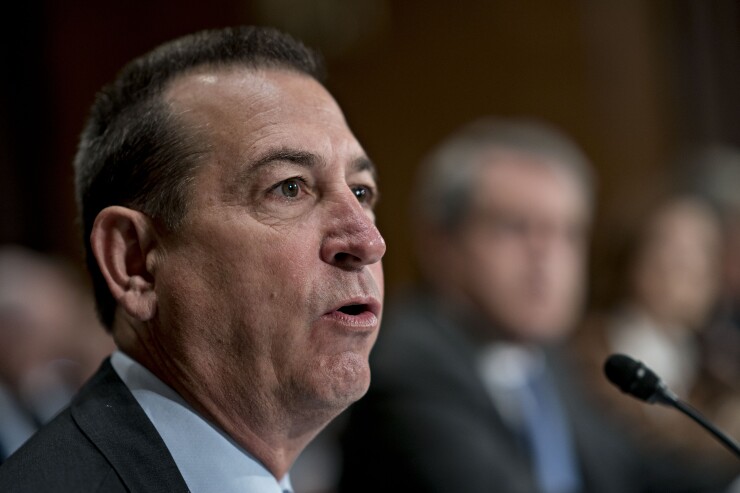An 8-year-old class action that wreaked havoc on the online lending industry is finally winding down, but the lobbying push in Washington to undo its impact shows no signs of abating.
Lawyers in the case have filed a proposed settlement that would provide $9.8 million in cash and debt relief to as many as 58,000 consumers, setting up the final chapter in a lawsuit that is likely to be remembered best for the legal precedent it established.
The long-running saga began in 2011 when a Bank of America credit card customer whose unpaid obligations were sold to a debt collector filed suit. The lawsuit — Madden v. Midland Funding — alleged violations of New York’s usury law, since the debt carried an interest rate that exceeded the Empire State’s cap.

In 2015, a federal appeals court
That ruling had worrisome implications for online consumer lenders that partner with banks to originate loans, since they use such arrangements to avoid having to comply with interest rate rules in each state. Some online lenders curtailed their business in New York, Connecticut and Vermont — the three states in which the appeals court ruling was legally binding.
Online lenders and bankers hoped initially that the U.S. Supreme Court would overturn the controversial ruling. But in June 2016, the justices
Next, industry lobbyists turned their attention to Capitol Hill, pressing for
“I do not expect any legislation to get through the Congress,” said Rick Eckman, an industry lawyer at Pepper Hamilton. “I don’t see that happening.”
Now industry lobbyists and lawyers are focusing their attention primarily on bank regulatory agencies.
“We believe that federal regulations would restore much needed certainty for banks in originating and selling loans, and would restore the important legal foundations of a nationwide lending market,” lawyers at Davis Polk & Wardwell wrote in a white paper last year.
Trump administration officials have signaled an interest in finding a solution that is acceptable to lenders. A report from the Treasury Department in July
And in congressional testimony last year, Comptroller of the Currency Joseph Otting said that he disagrees with the 2015 appeals court ruling.
An industry official with knowledge of agency deliberations said Monday that both the Office of the Comptroller of the Currency and the Federal Deposit Insurance Corp. are currently considering possible action.
An FDIC spokesman declined to comment. An OCC spokesman did not provide a response prior to deadline.
Under the lawsuit’s proposed settlement, $9.25 million would be set aside to reduce the balances of affected consumers, and an additional $555,000 would be earmarked for consumers who opt for a cash payment.
In a joint court filing, the two sides stated that the proposed settlement would foreclose the realistic possibility of several more years of litigation.




